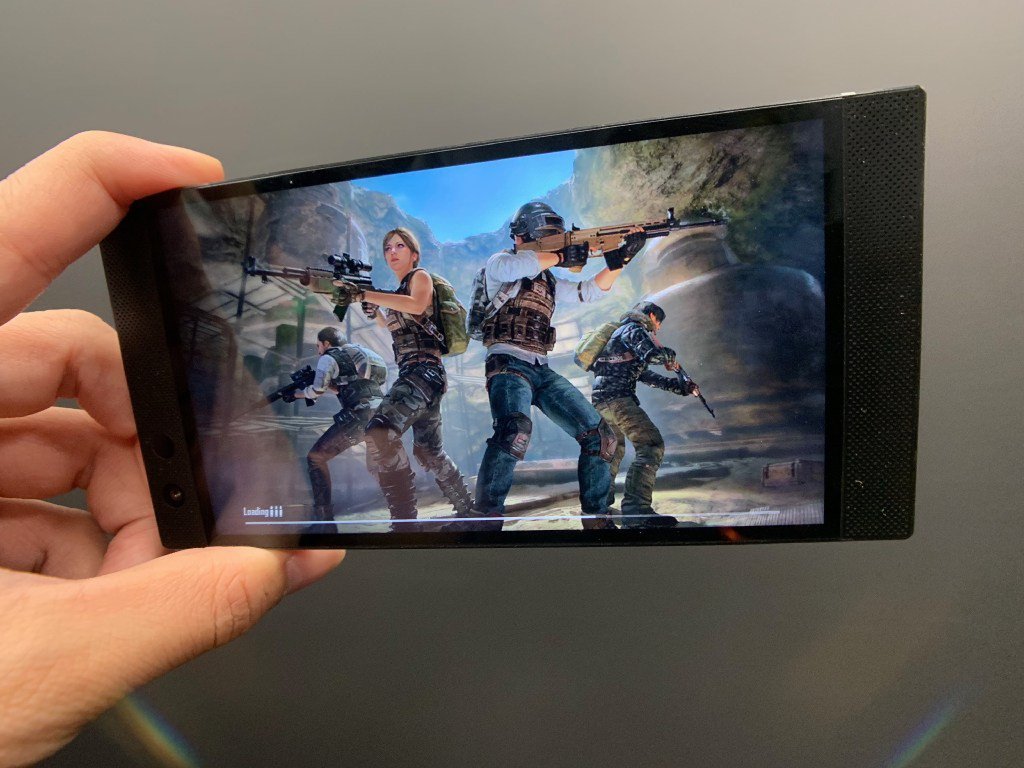You’d think the idea of playing any game on any device would be something gamers are interested in. Google and Microsoft, among many others, are investing heavily in the hope that they will be. But many are wary of cloud gaming.
Cloud gaming means you never have to download a game again. Instead of running on the PC in your house or the iPhone in your hand, games run on servers in the cloud. Your device sends your commands — run, jump, shoot — over the internet to those servers, while they send video back to your screens.
Some say that the latency of playing games in the cloud just won’t be fast enough. Others argue not about the technical aspect, but rather the point of it all. Who wants to play a big, sprawling PC game on a tiny smartphone?
But there’s one country that has all the pieces in place for cloud gaming to take off: China.
While most of the attention has been on Google Stadia and Microsoft xCloud, Tencent has also been working on cloud gaming. China’s biggest gaming company has been talking about letting people go from viewing live streams to playing along with the same streamer with just a click — without ever having to download the game.
One of the big reasons China is perfect for cloud gaming? 5G.
To say China is investing heavily in 5G would be an understatement. It’s been a key focus and a point of pride to get there before the West. (You might have heard a little bit of chatter about Huawei’s 5G network equipment.) Local brands are already selling 5G handsets. And telecom providers have begun trials in more than a dozen cities — with a population of over 167 million people.
Now, 5G has had its share of detractors, as well. Tech columnist Charles Arthur is skeptical, questioning whether we’ll be able to truly perceive the upgrade in speed. But that speed is critical to solving the most important issue with cloud gaming, which is latency.
Think about it this way: Right now, your controller, TV and PlayStation 4 are in the same room as you are. Signals between all three only have a short distance to travel. But cloud gaming effectively takes that PS4 away from your room and puts it in a server farm, likely dozens of kilometers away. The signals from your controller and to your TV simply have much farther to travel, and that increased distance results in lag — or, latency.
Faster speeds offer another huge advantage with visual fidelity. You’ve likely already seen this yourself with streaming video services like Netflix: The better your internet connection, the better the video quality.
The difference is that hardcore gamers are notoriously picky about visuals. And I sympathize. If your Netflix stream briefly suffers a drop in quality, well, Chandler’s face looks blurry for a few seconds. But if your game gets blurry in the few seconds that you’re ambushed by an enemy, well… you’re dead.

China’s advantages aren’t just technical, though. There’s also a cultural element at play, because gamers in China actually like playing big PC games on smartphones. There are 459 million mobile gamers in China, and they’re not just playing simple games like Candy Crush. China is the country that pioneered mobile battle royale. It took NetEase mere months to release a clone of PUBG for smartphones. And there are also mobile clones of League of Legends, World of Warcraft, Diablo… you name it, Chinese developers have done it.
Instead of playing mobile versions, cloud gaming allows you to play the real thing. You can play a huge game that won’t run on a phone… because it won’t run on a phone. It runs in the cloud and is streamed to the phone. Suddenly, cloud gaming could open up a huge library of PC and console titles to an enormous audience of smartphone gamers in China.
As a hardcore gamer, I’m not gonna lie: I hate playing these games on my iPhone. I hate using imprecise touchscreen controls. I hate the limited number of virtual buttons, compared to the many more on any console controller.
But I also recognize that I am in the minority. PUBG has tens of millions of console and PC players… and hundreds of millions of mobile players. The vast majority of people choose to play a big, complicated game like this on mobile, using the touchscreen controls I hate so much.So you have a vast number of gamers in China who have no problem playing big game with PC- or console-like experiences on mobile. And they live in a country investing heavily in technology that will solve the technical challenges facing cloud gaming.
When the cloud gaming revolution comes, it’ll come to China first.
This article first appeared on Abacus News.
